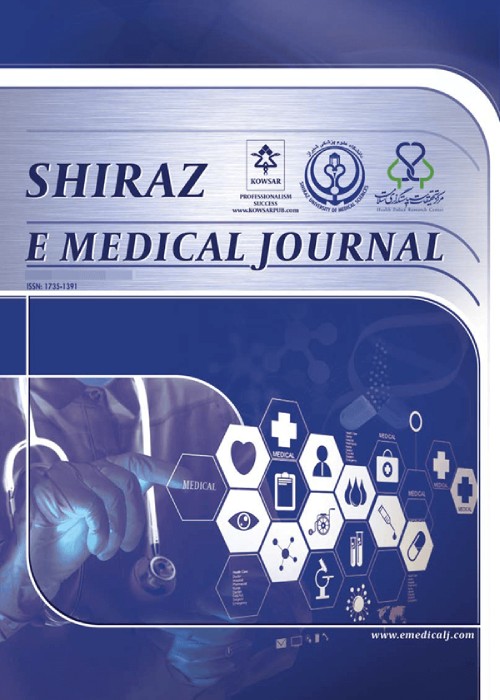Comparison of Serum Zinc Level Between Neonates With Jaundice and Healthy Neonates
Author(s):
Abstract:
Background
Neonatal jaundice is the most common cause of hospitalization in the first month of life. Factors that reportedly affect the severity of neonatal jaundice include: maternal, prenatal and neonatal factors as well as environmental factors (such as zinc). Animal study demonstrated a decrease in serum bilirubin level after zinc treatment in hyperbilirubinemic rats..Objectives
The current study aimed to investigate serum zinc level in the neonates with idiopatic jaundice..Patients and Methods
A case-control study was undertaken from 2008 to 2010 on 263 neonates in a neonatal intensive care unit and obstetrics department in Ghaem hospital, Mashhad, Iran. Of the 263 infants, 114 and 149 neonates were in the control and the case groups, respectively. Infants with a gestational age of > 35 weeks or with idiopathic jaundice were included in the study. Exclusion criteria were as follows: neonates with sepsis or any congenital abnormalities or with glucose-6-phosphate dehydrogenase (G-6PD) deficiency, ABO and RH incompatibility. Serum levels of zinc and bilirubin were compared between the control (114 neonates without jaundice) and case (149 neonates with jaundice) groups using atomic absorption spectrometry. The maternal and neonatal information were recorded. Spearman correlation coefficient, chi-square and Mann-Whitney tests were employed to analyze the data by SPSS software..Results
The mean value of the zinc serum level was 1024.74 ± 245.17 μmol/L in the control group and 841.42 ± 211.99 μmol/L in the case group (P < 0.001). There was no significant correlation between zinc level and factors such as maternal age, multi parity, mode of delivery, hospitalization and gender of infants (P > 0.05). Also, no significant correlation was observed between serum levels of Na, blood urea nitrogen (BUN), creatinine (Cr), white blood cell (WBC), platelet, hematocrit (Hct) and zinc (P > 0.05)..Conclusions
The level of serum zinc in the neonates with hyperbilirubinemia jaundice was lower than that of the ones without jaundice. It seems that zinc has a protective effect. However, more studies are needed for better decision making..Keywords:
Language:
English
Published:
Shiraz Emedical Journal, Volume:16 Issue: 11, Dec 2015
Page:
4
magiran.com/p1501204
دانلود و مطالعه متن این مقاله با یکی از روشهای زیر امکان پذیر است:
اشتراک شخصی
با عضویت و پرداخت آنلاین حق اشتراک یکساله به مبلغ 1,390,000ريال میتوانید 70 عنوان مطلب دانلود کنید!
اشتراک سازمانی
به کتابخانه دانشگاه یا محل کار خود پیشنهاد کنید تا اشتراک سازمانی این پایگاه را برای دسترسی نامحدود همه کاربران به متن مطالب تهیه نمایند!
توجه!
- حق عضویت دریافتی صرف حمایت از نشریات عضو و نگهداری، تکمیل و توسعه مگیران میشود.
- پرداخت حق اشتراک و دانلود مقالات اجازه بازنشر آن در سایر رسانههای چاپی و دیجیتال را به کاربر نمیدهد.
In order to view content subscription is required
Personal subscription
Subscribe magiran.com for 70 € euros via PayPal and download 70 articles during a year.
Organization subscription
Please contact us to subscribe your university or library for unlimited access!



